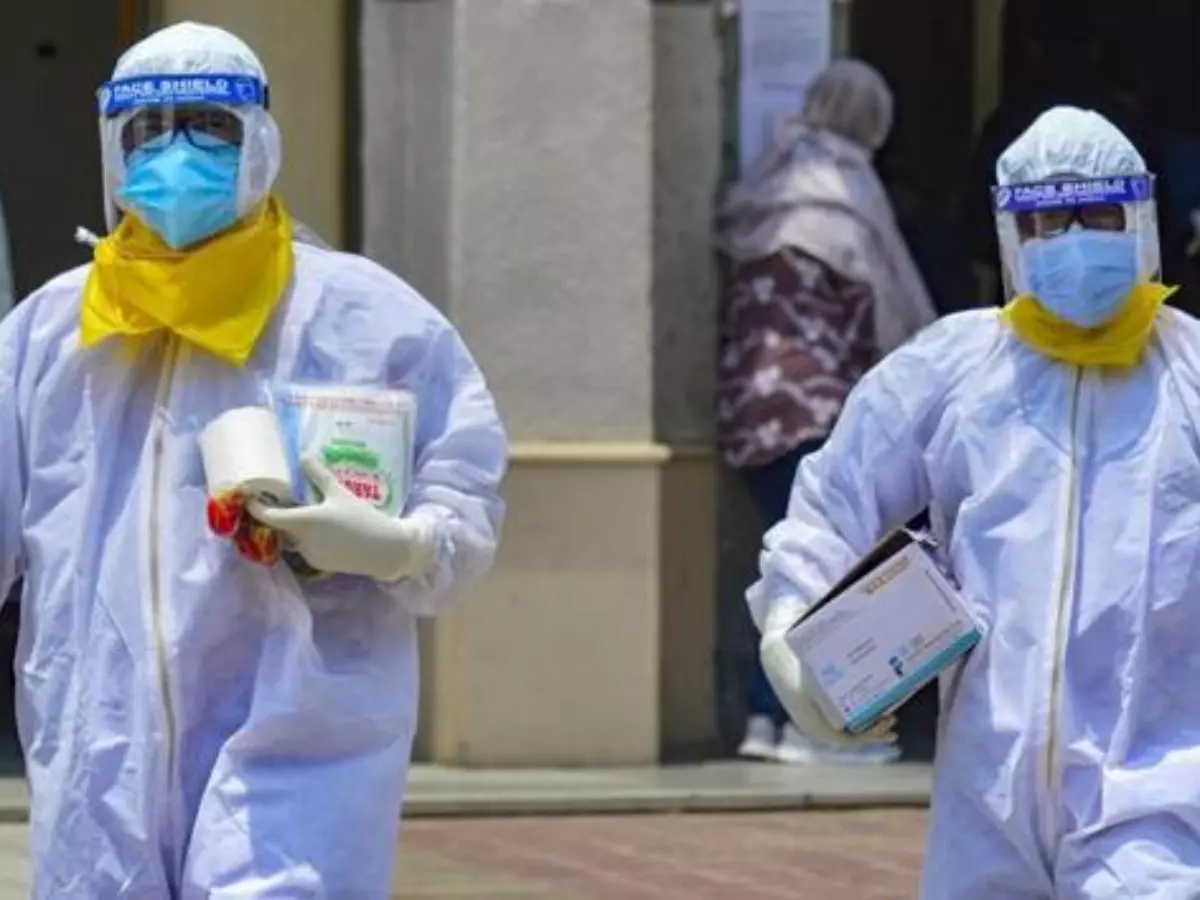COVID-19 resurgence: India logs 163 cases of new XFG variant; experts address danger, early symptoms and more
India reported 163 cases of the new XFG variant of COVID-19 across the country, including in the states of Maharashtra, Tamil Nadu, Kerala, Gujarat, West Bengal, and Andhra Pradesh. Know everything about the new variant, symptoms, dangers, and more.

India is currently seeing an upward spiral in COVID-19 cases again, after the recent spread in Southeast Asian countries including Singapore, Thailand and Hong Kong. On Tuesday morning, India reported 6815 active cases of COVID-19, among which 324 are fresh infections, and 3 deaths have been recorded in the last 24 hours.
Apart from this, the Indian SARS-CoV-2 Genomics Consortium (INSACOG) data noted that 163 cases of the XFG variant of COVID-19 have been detected across the country, including in the states of Maharashtra, Tamil Nadu, Kerala, Gujarat, West Bengal and Andhra Pradesh.
Moreover, Maharashtra has reported the highest number of XFG cases, with 89 infections so far.
What is the XFG variant of COVID-19, and is it dangerous?
India has detected new cases of a new Omicron-derived COVID-19 variant called XFG, first identified in Canada. ¡°If one is infected with this variant, then he/she can exhibit symptoms such as fever, dry cough, sore throat, headache, fatigue, body pain, nasal congestion, and runny nose,¡± warns Dr Samir Garde, Director of the Department of Pulmonology and Lung Transplant, Gleneagles Hospital, Parel.
?Weekly #EventBasedSurveillance | India#India has reported 6,851 active #COVID-19 cases, as per the latest data from the Ministry of Health and Family Welfare. The rise in infections is attributed to the spread of #Omicron sub-variants, particularly the newly detected XFG¡ pic.twitter.com/4c6s5wko2l
¡ª Precision Health (@Precisi0nHealth) June 10, 2025
¡°However, this variant is not known to cause any severe illness or hospitalisation or higher morbidity and mortality rates in patients,¡± adds Dr.Garde.
The symptoms due to this variant are reported to be mild. According to Dr. Garde, ¡°People need to be cautious and take utmost care of their well-being, as this XFG variant can spread rapidly. Hence, people should not panic. However, if you have any of these symptoms, then isolate yourself from your family members.
¡°Moreover, follow the doctor¡¯s advice after a confirmed diagnosis. Don¡¯t self-medicate at all. "To prevent the infection, get tested if you have flu-like symptoms and maintain respiratory hygiene, that is, wear a mask in crowded places and sneeze into your elbow and opt for handwashing,¡± he adds.
Is the month of June the peak season for COVID-19 resurgence?
Recently, the health authorities in Ludhiana flagged a concerning uptick in COVID-19 cases, with the district's positivity rate jumping to 7.14 per cent in early June, which is the highest monthly figure noted this year, reports ToI.
 Is it COVID-19 or just a viral fever? Cases spike in Delhi, WB | Credit: X | @JaipurDialogues
Is it COVID-19 or just a viral fever? Cases spike in Delhi, WB | Credit: X | @JaipurDialogues
As per the report, the number is nearly 12 times higher than in May. Does the month of June see a COVID-19 resurgence? ¡°New variants like XFG are likely more transmissible due to genetic mutations. "The situation demands caution, especially in crowded areas and among vulnerable populations,¡± says Dr. Sheela Chakravarthy, Director of Internal Medicine, Fortis Hospital, Bannerghatta Road, Bengaluru.
Wearing masks, practising good hygiene, and staying updated with COVID-19 vaccine doses are crucial. ¡°Close monitoring and prompt public health action will help control the spread and mitigate the impact of this resurgence, protecting public health and preventing severe disease and hospitalisation. "Precautions are essential for all, particularly the elderly and those with comorbidities,¡± adds Dr. Chakravarthy.
To stay updated on the stories that are going viral, follow Indiatimes Trending.
